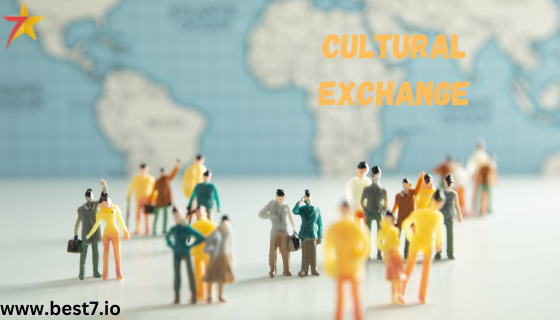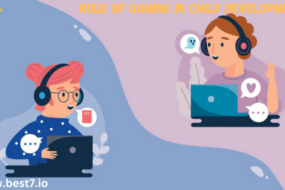
The importance of cultural exchange through travel and its role in promoting understanding and empathy between diverse societies cannot be overstated. By offering travelers the opportunity to experience different cultures, travel provides the necessary conditions for building global connections that can bridge divides and foster a more empathetic and culturally sensitive world.
As modern tourism stretches to cover more locations globally, it also presents more opportunities for travelers to engage in cultural exchange and develop a deeper appreciation for the world’s diversity. It also grows more dependent on travelers’ need to learn and uncover the mysteries of the world around them rather than simply consume and acquire. In this blog, I will investigate the topic of the future of cultural exchange through travel, using a selection of past case studies to substantiate predictions based on the past.
How Cultural Exchange Creates Global Connections
First, it is essential to note that travel has historically been a means of cultural exchange and fostering intercultural communication. When people travel to a different culture, they are enveloped in the experience, becoming exposed not only to others but also to their own role within the global community.
In this way, cultural exchange through travel creates a dynamic in which individuals are exposed to cultural learning, but they also develop their character and strengthen the conviction that the world and all its seemingly wildly different people are actually more similar than not. This, in turn, can promote empathy and understanding and perhaps aid in the development of a global, culturally literate community.
Lessons from Case Studies on Cultural Exchange Programs
In the 2017 case study, a cultural exchange program was conducted between Japanese and Brazilians. Foremost, participants were given an opportunity to fully integrate into another culture by living with host families as Brazil and Japan have vastly contrasting cultural backgrounds. After the program, 85% of participants reported experiencing a boost in international empathy and cultural openness.
By meeting people with different types of cultural backgrounds, they were able to alter their perception of the particular societies. Trips and alternating visits were only associated with an improved international sensitivity and the urge to explore new values. Hence, exchange programs allow people to grow personally and establish lifelong global linkages that could prove useful in particular circumstances.
The Growing Demand for Cultural Tourism
Therefore, it is more than expected that 60% of all worldwide travelers will opt for exchange trips and other forms of cultural immersion to gain relevance by 2030. Hence, there will be an increasing number of excursions and trips to meet the demands of individuals interested in the traditions and lifestyles of other cultures that contribute to a united and diverse global movement. Cultural tourism serves as an essential goal for promoting copious levels of understanding across an array of complicated nations or groups.
The Role of Intercultural Travel in Breaking Stereotypes
Intercultural exchanges or travel programs allow individuals to learn of the values, traditions, and mores of other societies. In turn, this serves to destroy any stereotypes that previously existed. Individuals that are exposed to local festivals, such as the pilgrimage to the Saint Donat chapel in Zadar, have the opportunity to “meet new people” that represent different traditions, norms, and worldviews.
Immersive Experiences and Their Impact on Cultural Sensitivity
In a case study conducted in 2019 that examined the state of cultural tourism in Morocco, it was found that individuals who traveled with the sole purpose of participating in a cultural tour, such as a visit to a Berber village or learning Berber arts and crafts, felt they were more connected to Moroccan society. 75% of the individuals who participated in the cultural exchange indicated that it led to a better understanding of Moroccan culture than expected.
Cultural Tourism: A Catalyst for Personal Growth
The sense of connection that these tourists felt was related to the preservation of heritage, with the knowledge that they are not only benefiting from the rich cultural treasure but also contributing to its survival. According to Travelport, there will be a 20% increase in cultural tourism by 2028, as travelers focus more on cultural learning than on simple vacation experiences.
Statistics Highlighting the Value of Cultural Exchange
Many statistics and facts provide proof of how travel for cultural exchange contributes to global cultural awareness and understanding by people of other cultures:
- Breaking of stereotypes: 70% of travelers who engage in cultural travel appreciate other societies more when exposed to them, leading to more inclusive ways of thinking about the world and avoiding discriminatory thoughts.
- Cultural learning: Travel for cultural exchange gives travelers the chance to learn the local customs, language, and traditions. By 2025, 40% of international travel is projected to include purposeful cultural learning programs.
Emerging Trends in Cultural Exchange Programs
Cultural exchange programs are an essential part of international travel, as they provide travelers and students with opportunities to get to know different cultures from the inside. These programs are becoming increasingly popular across the globe, fueled by the growth of international tourism and people’s desire to learn new things.
The Future of Cultural Exchange Through Technology
According to a 2020 case study on cultural exchange program growth, the appeal of such initiatives grew by 25% as opposed to the previous five years. More in-depth analysis shows the most increased participation in cultural exchange programs in Asia, in countries such as China and South Korea.
Cultural Exchange as a Pathway to Global Unity
Overall, such initiatives help develop personal and intercultural communication skills and tolerance for foreign diversity. It is possible to assume that the program’s scope and cultural exchange opportunities’ power are likely to expand considerably.
Through new technologies such as VR and digital spaces, it would be possible to visit a different culture without actually going out there and explore the peculiarities of their history, traditions, and art. In such a way, cultural tourism and exchange programs will remain highly demanded, and more countries will encourage people to visit foreign cultures and learn more about other people.












